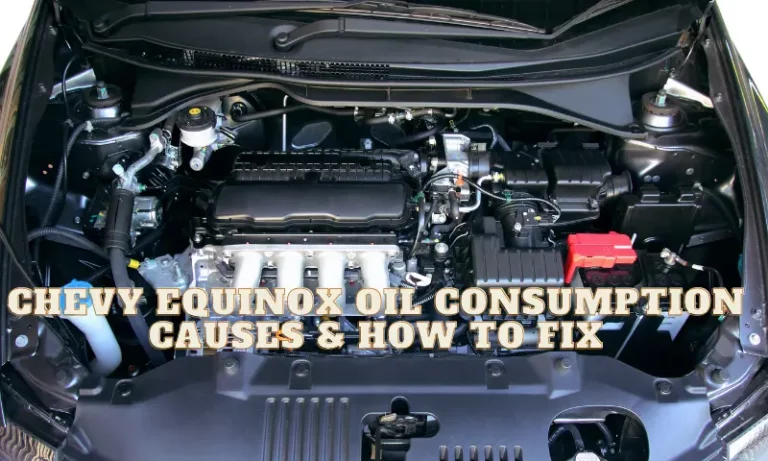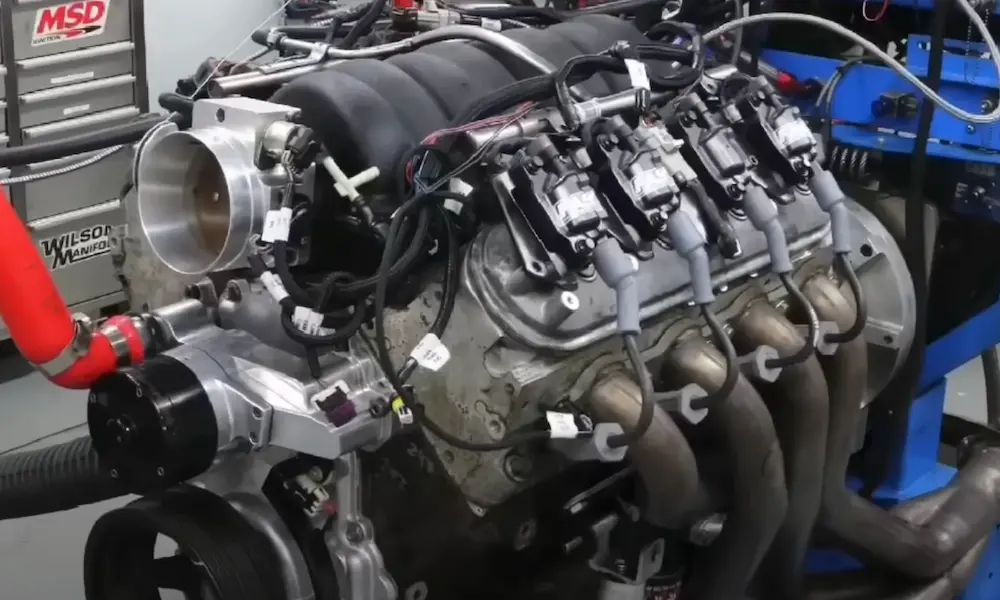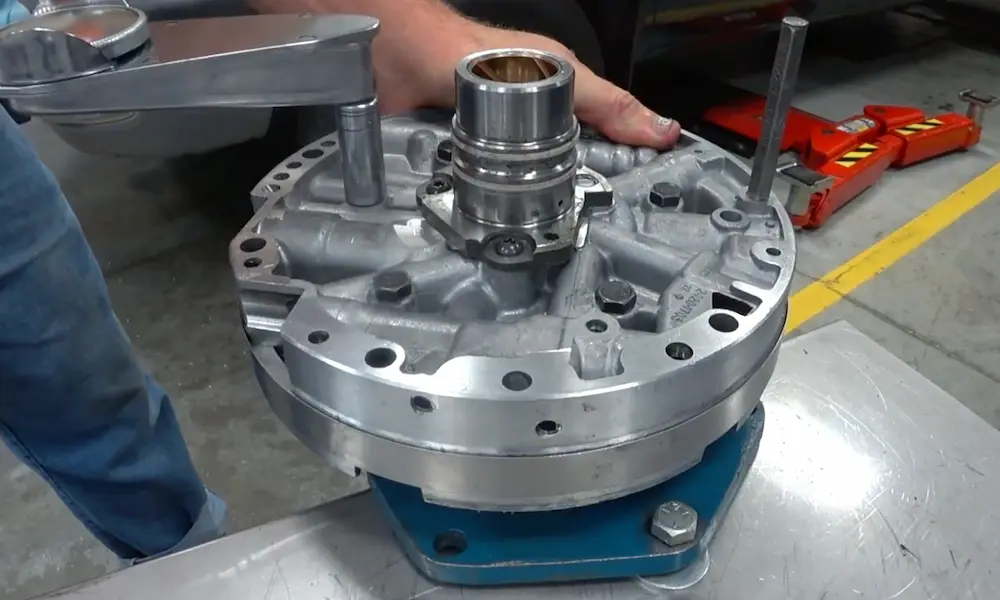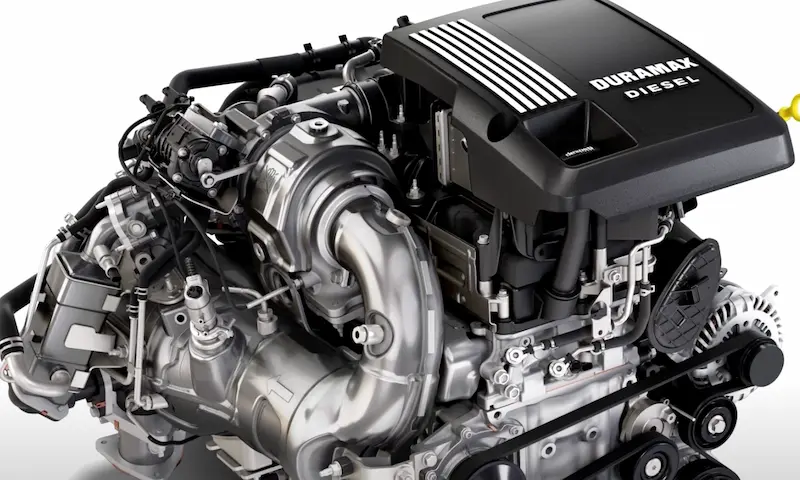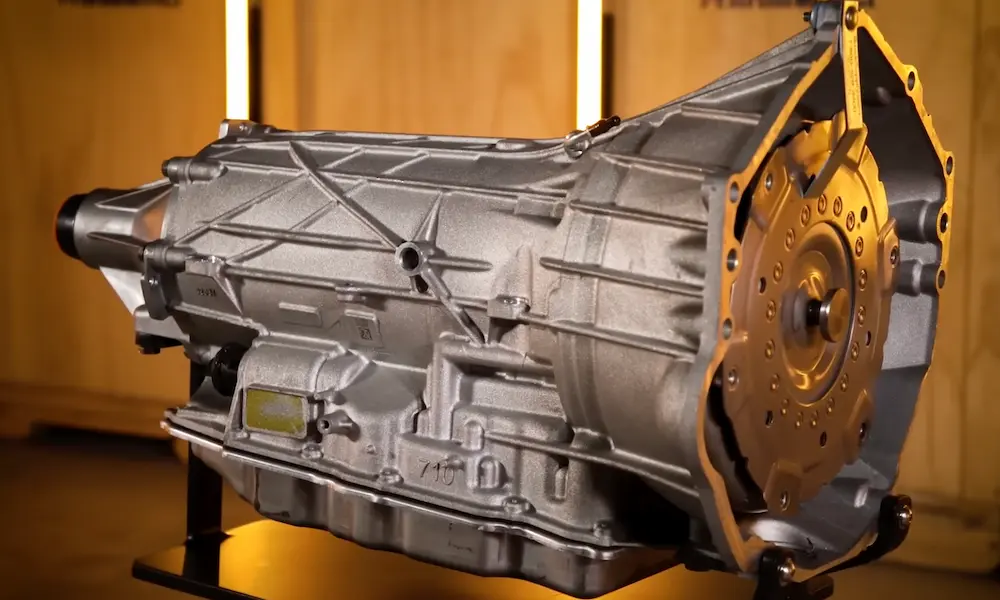Is your Chevy Equinox burning through oil faster than it should? You’re about to discover everything you need to know about this widespread problem affecting thousands of vehicles. I’ll walk you through the causes, symptoms, and your options as an owner—whether your warranty is still active or long expired.
Which Chevy Equinox Models Have Oil Consumption Problems?
The oil consumption issue isn’t affecting all Equinox models equally. Specific model years and engines are much more prone to this defect.
The most severely affected models include:
- 2010-2013 Chevrolet Equinox with 2.4L Ecotec engines (highest rate of complaints)
- 2014-2017 Chevrolet Equinox with 2.4L engines (continuing but less frequent issues)
- GMC Terrain models with identical engine configurations
The problem is most prevalent in the 2010-2013 model years, with General Motors officially acknowledging the defect through Technical Service Bulletins (TSBs) and Special Coverage Adjustments.
How Much Oil Consumption Is Normal vs. Problematic?
Let’s be clear about what’s normal and what’s not when it comes to oil consumption in your Equinox.
Normal Oil Consumption:
- GM considers consumption of 1 quart per 2,000 miles as the upper limit of “normal”
- Most modern engines use very little oil between changes
Problematic Oil Consumption (Equinox Issue):
- One quart every 1,000 miles or less
- Many owners report consumption of one quart every 300-500 miles
- Needing to add oil between regularly scheduled oil changes
If you’re checking your dipstick regularly (which you absolutely should with these models), and it’s consistently showing low oil levels between changes, you’re likely experiencing the infamous Equinox oil consumption problem.
What Causes Excessive Oil Consumption in the Equinox?
The root of the problem lies in the engine design itself, specifically with the piston and ring assembly.
Primary Technical Causes:
- Defective Piston Rings: The 2.4L Ecotec engine uses low-tension piston rings that fail to maintain proper tension to keep oil in the crankcase
- Ring Sticking: Carbon deposits cause the piston rings to stick in their grooves, preventing proper sealing
- Poor PCV System Design: The Positive Crankcase Ventilation system uses a metered hole instead of a traditional PCV valve, contributing to oil consumption
- Spray Pattern Issues: The direct injection system creates spray patterns that can lead to carbon buildup on valves and pistons
The combination of these design flaws creates a perfect storm for excessive oil consumption, with oil either burning in the combustion chamber or leaking past the rings.
Warning Signs Your Equinox Has Oil Consumption Issues
How can you tell if your Equinox is suffering from this problem? Here are the most common symptoms:
- Rapidly dropping oil level (check dipstick weekly)
- Engine knocking or rattling sounds, especially during cold starts
- Oil pressure warning lights appearing on your dashboard
- Spark plug fouling resulting in misfires and rough running
- Blue smoke from exhaust (in severe cases)
- Rough idling and diesel-like engine noise
- Unexpected loss of power during acceleration
If you notice two or more of these symptoms, it’s highly likely your Equinox is experiencing the oil consumption defect.
Has GM Acknowledged the Problem?
Yes, General Motors has acknowledged the issue through multiple channels, though their response has evolved over time.
Official GM Responses:
- Technical Service Bulletins: GM issued TSB 16118 for 2012 models, TSB N192291100 for 2013 models, and TSB 15285C for 2011 models
- Special Coverage Adjustments: Extended warranty coverage to 120,000 miles for affected model years
- Legal Settlements: Agreed to multiple class action settlements (more on this below)
Despite these acknowledgments, many owners report that GM dealerships still try to claim that high oil consumption is “normal” when they first bring in their vehicles.
What Repairs Fix the Oil Consumption Issue?
When it comes to addressing the oil consumption problem, there are both temporary and permanent solutions available.
Temporary Fixes:
- Regular oil level monitoring: Check your oil every 500 miles
- More frequent oil changes: Every 3,000-5,000 miles instead of manufacturer-recommended intervals
- Using high-mileage oil formulations: 10W-30 or 10W-40 oil may reduce consumption
- Seafoam treatments: Can help clean piston rings and intake systems
Permanent Solutions:
- Piston and ring replacement: The most comprehensive fix, costing $5,000-$7,000 if not covered by warranty or settlement
- Engine replacement: Similar cost range to piston/ring replacement
- Engine rebuild: Slightly less expensive but requires extensive labor
It’s worth noting that many owners report the piston ring fix is not always permanently effective, with some vehicles returning to high oil consumption within 20,000-30,000 miles after repair.
Class Action Lawsuits and Settlements
Several major class action lawsuits have addressed the Equinox oil consumption issue, resulting in significant settlements for affected owners.
2010-2013 Model Settlement:
- $42 million settlement approved for 2010-2013 Equinox and Terrain owners
- Coverage included free piston assembly replacements and repair reimbursements
- Extended warranty coverage to 120,000 miles or 7 years and 6 months
- Many eligible owners have already received benefits from this settlement
2014-2017 Model Litigation:
- New class action filed in 2023 covering 2014-2017 models
- Alleges GM knew about the defect when selling these vehicles
- Case filed in Missouri federal court
- Still in progress as of this writing
Additional Settlement Activity:
- $150 million settlement for 2011-2014 Chevrolet and GMC vehicles with LC9 engines
- $24.88 million Oklahoma settlement for affected GM vehicles
- Individual payouts ranging from $815 to $2,149 per vehicle
If you own an affected Equinox, you may be eligible for benefits under one of these settlements. Check the settlement websites or contact a lemon law attorney to verify your eligibility.
Your Rights Under State Lemon Laws
Beyond class action settlements, you may have rights under your state’s lemon law if your vehicle is relatively new.
Lemon laws typically apply when:
- Your vehicle has a substantial defect covered by warranty
- The defect persists after a reasonable number of repair attempts (usually 3-4)
- The vehicle has been out of service for repairs for a significant period (often 30+ days)
- The defect substantially impairs the vehicle’s use, value, or safety
For Equinox owners, the oil consumption issue often qualifies as a substantial defect under lemon laws. The remedies can include:
- Full buyback of your vehicle
- Replacement with a comparable new vehicle
- Cash settlement greater than class action amounts
While lemon law coverage varies by state, most provide better compensation than class action settlements for qualifying vehicles.
Step-by-Step Guide: What to Do If Your Equinox Is Burning Oil
If you suspect your Equinox has the oil consumption problem, follow these steps:
1. Document Everything
- Keep records of all oil additions between changes
- Note dates, mileage, and how much oil was added
- Take photos of dipstick readings
- Save all repair receipts and service records
2. Get Dealership Documentation
- Have your dealership perform an oil consumption test
- Request copies of all test results and repair orders
- Make sure they document any oil consumption issues in writing
3. Check Your Coverage Status
- Determine if your vehicle is covered under:
- Original powertrain warranty
- Extended warranty from GM due to Special Coverage Adjustments
- Class action settlement coverage
- State lemon law protection
4. Explore Your Options
Based on your coverage status:
If Under Warranty or Special Coverage:
- Demand the piston/ring replacement or engine replacement
- Ensure all work is done at an authorized GM dealership
- Obtain detailed documentation of repairs performed
If No Longer Covered:
- Consider whether a $5,000-$7,000 repair makes financial sense
- Explore independent repair shops for more affordable options
- Decide if selling/trading the vehicle is more economical
If Eligible for Legal Action:
- Contact a lemon law attorney for individual representation
- Check eligibility for ongoing class action lawsuits
- File a complaint with NHTSA to strengthen regulatory action
Living With a High-Oil-Consumption Equinox
If you’ve decided to keep your affected Equinox without major repairs, here’s how to manage the issue:
Essential Maintenance Practices:
- Check oil level weekly: Make it part of your routine, like getting gas
- Carry extra oil: Keep 2-3 quarts in your trunk at all times
- Use high-mileage oil: May slightly reduce consumption
- Never run low on oil: Running with low oil can cause catastrophic engine damage
- Use oil consumption tracking apps: Document every addition for warranty claims
- Consider engine treatments: Products like Liqui Moly Oil Saver may provide some temporary relief
Maintenance Schedule Adjustments:
| Maintenance Item | Factory Interval | Recommended Interval for Oil-Burning Equinox |
|---|---|---|
| Oil Changes | 7,500-10,000 miles | 3,000-5,000 miles |
| Oil Level Checks | Monthly | Weekly or every 500 miles |
| Spark Plugs | 60,000-100,000 miles | 30,000-45,000 miles |
| PCV System | No regular service | Clean/replace every 30,000 miles |
| Catalytic Converter | No regular service | Inspect every 30,000 miles |
Following this more aggressive maintenance schedule won’t fix the underlying issue but may help prevent secondary damage from the oil consumption problem.
Long-Term Impacts on Vehicle Value and Reliability
The oil consumption issue has significantly affected the value and reliability ratings of affected Equinox models.
Impact on Reliability:
Consumer Reports has rated the 2010-2013 Chevrolet Equinox as having:
- 1 out of 5 for reliability
- 1 out of 5 for owner satisfaction
- Recommendation to avoid these model years entirely
Secondary Problems Caused by Oil Consumption:
- Catalytic converter damage from oil burning
- Engine failure if oil levels become too low
- Spark plug fouling requiring premature replacement
- Reduced fuel economy due to incomplete combustion
Resale Value Impact:
Affected models typically see:
- 15-25% lower resale values compared to non-affected SUVs of similar age
- Significantly longer time on market when selling privately
- Lower trade-in offers at dealerships aware of the issue
Buying Used? How to Check for Oil Consumption Issues
If you’re considering purchasing a used Chevy Equinox, here’s how to check for this problem:
Before Purchase:
- Check the VIN: Look up the vehicle on the GM recall and service bulletin database
- Request service records: Look for frequent oil additions or related repairs
- Perform a cold start test: Look for blue smoke on startup
- Check oil level and condition: Should be clean and at proper level
- Look for oil buildup: Inspect tailpipe for oil residue
- Check for settlement eligibility: Verify if the vehicle qualifies for class action benefits
Red Flags When Buying:
- Owner has “just changed the oil” before showing the car
- Service records show frequent oil additions
- Engine has been recently cleaned, hiding potential leaks
- Seller claims “all engines use some oil”
- Strong smell of engine cleaner or degreaser
Final Thoughts: Is Your Oil-Burning Equinox Worth Keeping?
The answer depends on several factors:
- Vehicle age and mileage: Newer, lower-mileage vehicles are better candidates for repair
- Warranty status: If covered by warranty or settlement, repairs make more sense
- Your mechanical aptitude: Comfortable checking and adding oil frequently?
- Financial situation: Can you afford unexpected repairs if engine fails?
- Attachment to vehicle: Sentimental value vs. practical considerations
For many owners, once they’re aware of the issue and maintenance requirements, they can make an informed decision about whether to repair, sell, or continue monitoring their vehicle’s condition.
Remember that excessive oil consumption isn’t just an inconvenience—it can lead to catastrophic engine failure if not properly managed. Whatever you decide, stay vigilant about your oil levels and consider all your legal options before investing in major repairs.

